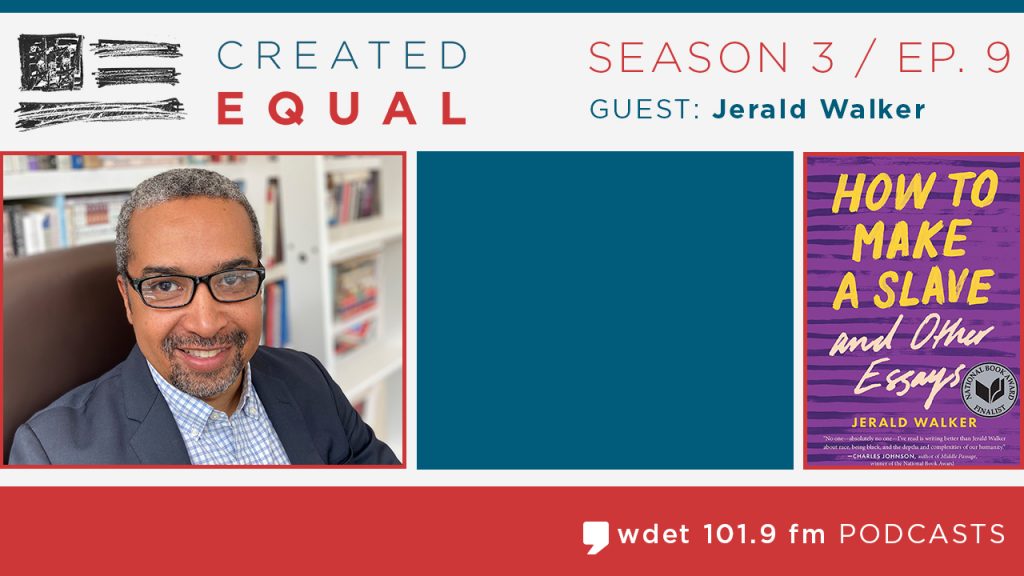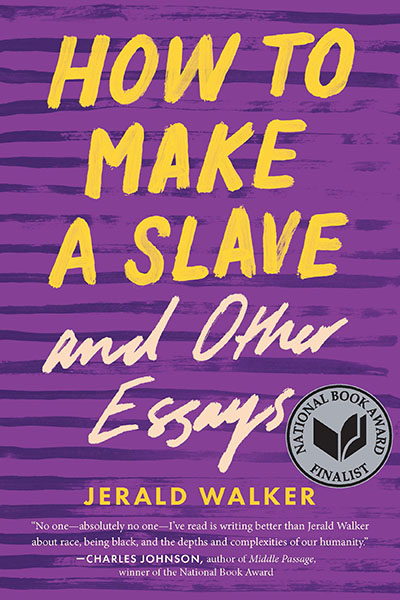Created Equal: Jerald Walker Finds Joy in the Midst of Hardship
Author Jerald Walker reflects on coming of age as a Black man in America in his book, “How To Make A Slave.”

Season Three of the podcast Created Equal explores “Writers on Race: From Ralph Ellison to Colson Whitehead,” and features some of the most important voices in literature as well as the national conversation on racial inequities.
The conversations were conducted on the radio program, Detroit Today, in the WDET studios on Wayne State University’s campus throughout the pandemic and civil unrest of 2020. Each episode consists of a conversation between Henderson and one writer exploring the role of their work in the conversation about race in America.
Subscribe to the Podcast
Apple Podcast – Spotify – Google Podcast – NPR One
Episode 9 Guest: Jerald Walker
Jerald Walker is a Writing, Literature and Publishing professor at Emerson College.
He is also the author of a new collection of personal essays called “How To Make A Slave And Other Essays,” which is a finalist for a National Book Award. The collection explores what it means to grow, parent, write and exist as a Black man in America.
Discussion Points:
On the historical context of the title of the collection, “How To Make A Slave.”
“There’s one scene in his autobiography where (Frederick) Douglas is pretty much fed up with his treatment by his slave master. And he says, right before nearly beating the man to death, ‘You have seen how a man was made a slave. Now you shall see how a slave was made a man.’ And it’s a remarkable sentence because later, in my life, I see that that sentence can also mean, in a broader context, that if you are a slave to race in this country, then you cannot be a man in the broad sense of the term. You will never be the master of yourself if you allow the subject of race to dominate your every thought, your every move.”
Exploring the resiliency of African Americans:
“I think it would do everyone well on both sides of the racial equation, to not focus solely on what was done to African Americans, but what African Americans did in response to what was being done. What we’re talking about here is a group of people who have managed to endure the brutalization of slavery and its aftermath, and if you can endure that and make it through it, then you by necessity, are more than the sum of that brutalization.”
Created Equal Season 3 is supported by the Michigan School of Psychology

Trusted, accurate, up-to-date
WDET is here to keep you informed on essential information, news and resources related to COVID-19.
This is a stressful, insecure time for many. So it’s more important than ever for you, our listeners and readers, who are able to donate to keep supporting WDET’s mission. Please make a gift today.

